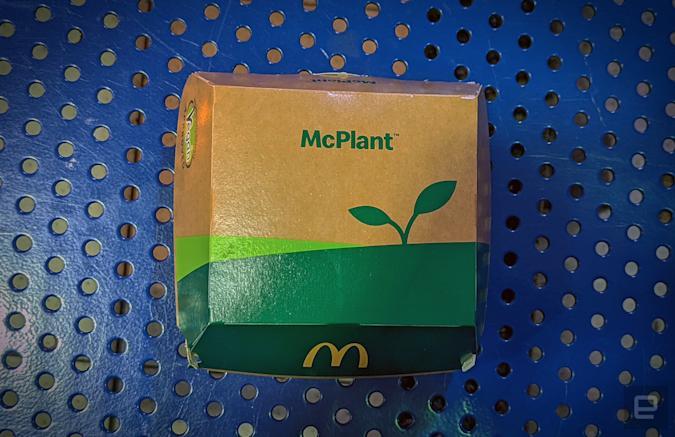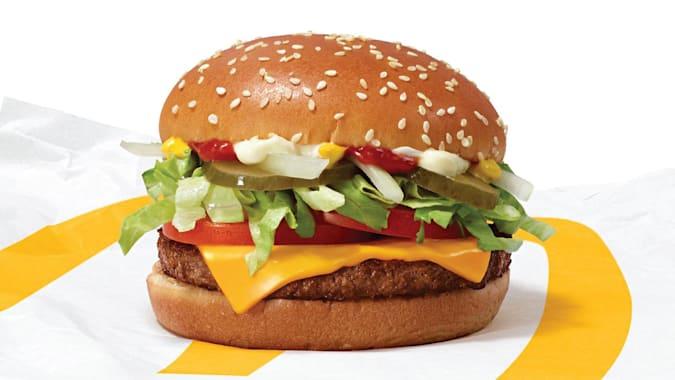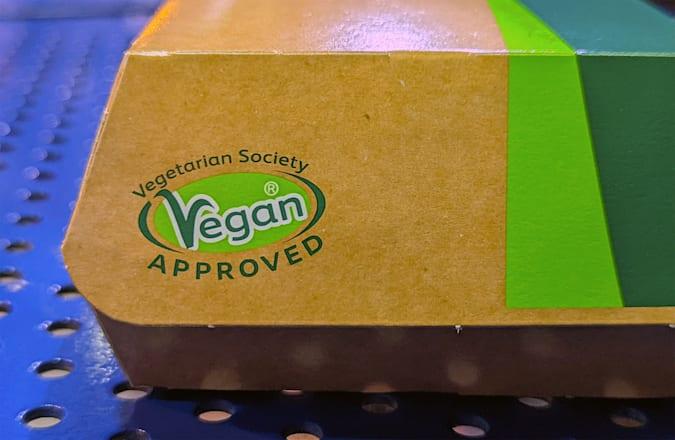
McDonald’s first plant-based burger (ignoring the veggie “burgers” that have come before it) finally goes on limited sale in the US later this week.
Following a brief trial in Canada in 2019, the McPlant has been on a wider tour of McDonald’s franchises in Europe. Ahead of its debut next week, I decided to try out the McPlant here in the UK, where it’s been available in selected restaurants for over a month. The TLDR review is that it tastes like… a McDonald’s burger.
I’ve had better (and worse) burgers, both plant and animal-based, but the launch itself is a major deal for the future of plant-based burgers in general. Whether you eat there or not, you can’t avoid the fact that this is the world’s biggest fast-food chain attempting a burger that tastes of meat — without using any meat.
McDonald’s is a little late to the plant-based patty party. In 2019, its rival Burger King started selling its own Impossible Whopper, recruiting Impossible Foods to help create a meat-free patty for its iconic menu item.
The launch wasn’t without issues though. Depending on location, the Impossible Whopper launched at roughly $1-2 dollars more than the beef-based original. (The chain eventually cut prices, due to slowing sales according to Bloomberg.)
Then there was the class-action lawsuit, because the Impossible Whopper, while entirely plant-based, was being cooked on the same surfaces as meat and dairy products. A vegan customer said that ads that said “100% Whopper, 0% Beef” were misleading. A Florida judge eventually dismissed the case, but not before it made headlines, and ensured that, from then on, Burger King stipulated that its plant-based Whopper was prepared on surfaces that came into contact with meat and dairy items, meaning that it was subsequently not vegan.
McDonald’s takes a similar approach on its corporate site, saying that the McPlant will be “cooked on the same grill as meat-based products and eggs“. In even more certain terms, the McPlant features American cheese and mayonnaise, which make it far from vegan-friendly.

However, McDonald’s UK and Ireland took three years to develop its own take on the McPlant, and it ticks the vegan box. Alongside the co-developed Beyond Meat patty, this particular McPlant comes in a vegan sesame bun, uses a pea-protein-based ‘cheese’ slice and a new vegan sauce that tastes somewhere between mayonnaise and the Golden Arches’ own burger sauce. (I really wish they’d given the sauce some kind of name, just to make it less… mysterious.) I think it’s meant to be a mayonnaise substitute.
The new menu item has also been given the Vegetarian Society’s vegan accreditation, because on top of those recipe changes, here in the UK it is cooked and prepared separately to non-vegan products. For now, the US McPlant is neither vegan nor vegetarian and will come with a slice of American cheese and mayonnaise. The burger is also cooked on the same grill as meat – and egg-based products.
But back to my McPlant. With lettuce, tomato, pickles and that faux cheese slice, the UK version of the McPlant is more substantial than a standard McDonald’s cheeseburger.

From what I’ve been told, the composition and the Beyond Meat patty remain the same in the McDonald’s USA version. Like other high-end plant-based burgers given the mainstream treatment, it tastes meaty and the — I hate this word — mouthfeel tells my brain that I’m chewing on a McDonald’s burger.
The good thing about using plant-based meat substitutes in a burger is that the patty is just half the story. How it’s cooked, the toppings, the seasoning and the sauce add an awful lot (often more) to the flavors and textures.
Each bite is literally a cross-section of the entire burger, and so even if you think rival plant-based patties (like Impossible Foods’) are better than Beyond’s, once it’s cooked, stacked and in your hands, for most of us, a patty that’s marginally tastier is irrelevant.
Despite that, the burger itself does taste like a McDonald’s beef hamburger. So that’s a success. (I’m less sold on the fake cheese slice, but the majority of vegan cheese options taste terrible too, so not sure I can blame McDonald’s entirely here.)
The economies of scale are why the McPlant matters. Depending on how the US trial at eight restaurants fares, McDonald’s patrons might be willing to swap out their beef-based burger for a McPlant — if it tastes the part — and that could have a tangible effect on how much meat is both consumed by the public — and how much is farmed.
Halfway through eating the McPlant, I realized that it reminded me of a Burger King Whopper. (I can’t wait to read the comments after this.)
But I’m a Big Mac man, myself. Maybe a Big MacPlant is next?









